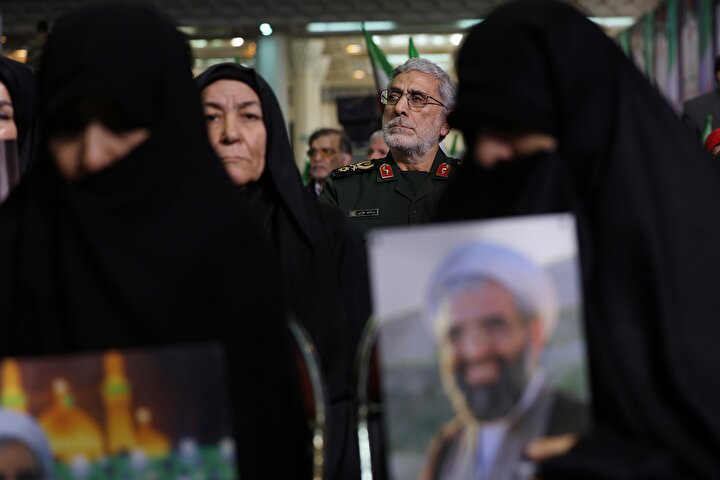
How the United States has historically failed in culturally infiltrating Iran

One of the old
concerns of Supreme Leader Ayatollah Ali Khamenei is cultural assault
and infiltration by the enemies. Lately also the Leader in part of his
speech with the commanders of the IRGC said "Of course economic and
security infiltration is dangerous and has serious aftermaths. But the
enemy’s cultural infiltration is much more dangerous and all have to be
careful about it.”
In another part of his speech, the leader said "We will not allow the United States to infiltrate Iran on political or cultural grounds once more through the conclusion of the nuclear talks.”
This comes while cynicism against United States measures in Iran has a long record and vast measures by United States officials are seen aimed at a cultural infiltration into Iran. The Bill on Provincial and Statehood Associations is the most prominent action by the United States government to infiltrate Iran on cultural grounds.
The Bill on Provincial and Statehood Associations which was passed in the Iranian calendar year 1341 in the Amir Assadollah Alam administration was one of the most prominent measures by the United States to culturally infiltrate Iran. The attempt however failed thanks to the promptness of late leader Ayatollah Ruhollah Khomeini as the bill was annulled a couple of months later. The bill was part of efforts that the Shah was going to carry out under the name of "social reform” as suggested by the then new United States administration. This came as a bill called "land reform” in the Iranian calendar year 1340 was praised by the United States government and media as they called the Shah’s actions a "white revolution” or "the revolution of the Shah and people”.
Cultural conditions of the drafting of the bill
The bill was passed in situations in which after the demise of Ayatollah Boroujerdi in the Iranian year 1340, the government imagined that the clerical community has begun to go downhill. In 1340 ayatollah Kashani also died. Nevertheless, Imam Khomeini did not undertake any action to settle his ranking as a clerical reference right after the demise of ayatollah Boroujerdi, despite the fact that the Qom seminary and people were demanding so.
This made the government do its intended reforms with more momentum and in the same time it tried to move the clerical reference out of the country. So it was that the Bill on Provincial and Statehood Associations was passed. According to the regulation, which counted as law in the absence of the Majlis, women were given the right to vote. Furthermore, the voting people and the candidates were no more required to swear upon the Quran and they could swear instead on any divine book.
Imam Khomeini who was at that time in Qom, realized that the legislation was the onset of a new scheme and that the regime wanted to know the tolerance of the clerical society. Imam Khomeini knew that suffrage for women was no more than a populist act, because in fact even men did not have any right to vote and the outcome of the polls was always candidate who were in tune with the regime. In fact, through this regulation the government intended to break more than before the sanctity of Islam and the clergy. In response to the issue of the freedom of women, Imam Khomeini said "We are not against the progress of women. We are against corruption. We are against such wrong deeds. Men are not free in this society let alone women. Does the freedom of women and the freedom of men come by words?”
The elimination of the conditions of being Muslim and swearing upon the Quran which were another part of the Bill on Provincial and Statehood Associations were arranged in order to fight Islamic values in Iran. Some experts believe that the Shah’s support for Israel at that time was a precondition for the support of the Kennedy administration behind the Pahlavi government, and that the infiltration of the Bahaeis in the three governmental branches, especially in the legislative center, were helping that aim, and that to further facilitate that infiltration it was necessary to eliminate the Quran and Muslimhood.
But as the bill was revoked behind closed doors, Imam Khomeini in a session with Qom clerics said it was not enough, and that uprising would go on against the legislation as long as its revocation was not announced in public media.
The role of Imam Khomeini in illuminating the real intention of the Shah and warning people and the clerical society was indispensable. Following that, open letters and telegraphs by clerics found vast reverberations among people.
The government first tried to launch a campaign against the clerics. Alam in a radio address said the government would not back down from its reform plans. Despite that, people held large demonstrations across the country and one and a half months after the bill was passed, the government set one step back to announce that it would apologize to clerics. But Imam Khomeini would not back down and asked for official revocation of the bill.
It was so that a while later the cancellation of the legislation was announced in governmental newspapers. But in a message the following day, Imam Khomeini said something unexpected: All this is a game, a lie. These guys have more comprehensive plans for this country and what has been done is to fool you. You should expect more sedition and I warn you.
Message End/



